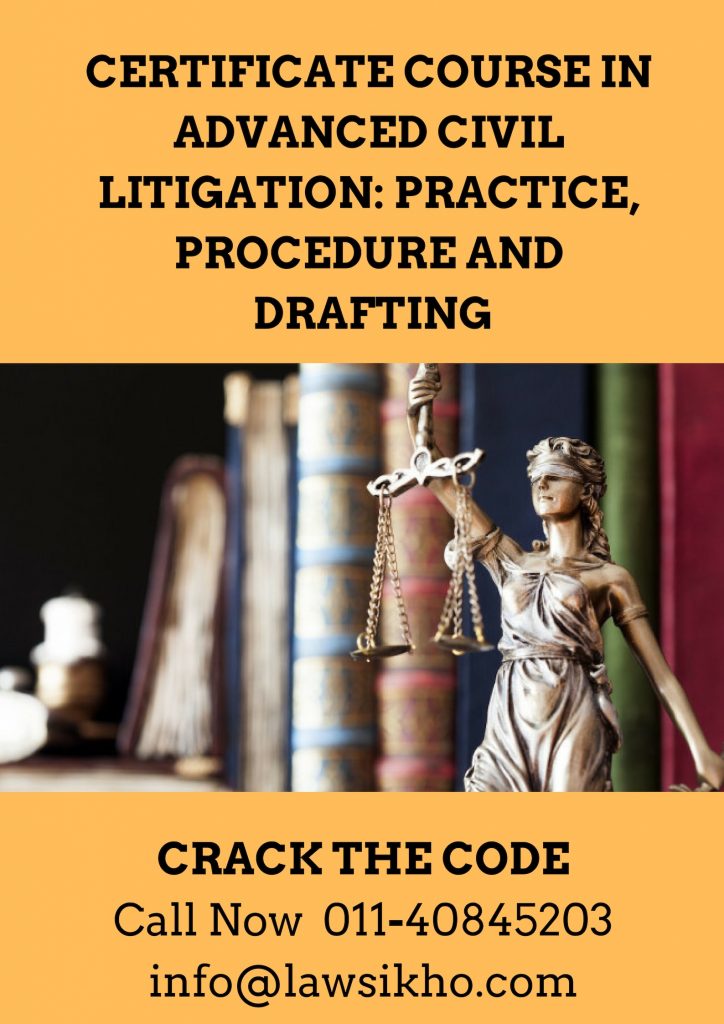The article is written by Shubham Choudhary, a 2nd Year law student of the West Bengal National University of Juridical Sciences. the author has highlighted the evolution and significance of Fundamental Duties under the Indian Constitution.

Introduction
With great power comes great responsibility, familiar enough, but have you ever heard of something similar to this, with rights come duties. But this wasn’t the notion of our constituent assembly, they had given us immense rights, but they didn’t talk about our duties towards the State, though they have talked about duties of the state in the form Directive Principles of State Policy.
Interestingly it was in 1976, we got to know about fundamental duties when these were added by the 42nd Amendment Act upon the recommendation of the Swaran Singh Committee. The idea of Fundamental Duties has been borrowed from the Constitution of erstwhile USSR. Till then, Japan was only the democratic state that contains the Duties of the citizen. It was the belief of the socialist government that both rights and duties are of equal importance.
Fundamental Duties are embedded in Part IV of the Indian Constitution under Article 51A. originally the duties were ten in number, later on by 86th Amendment in 2002, they levelled up to eleven.
Features of Fundamental Duties
- The fundamental duties contained both the moral as well as civic duties. For example, cherishing noble ideals from freedom struggle is on moral lead however respecting the constitution, national flag and national emblem is on civic lead.
- Though some of the fundamental rights are extended to foreigners as well as aliens but fundamental duties are only confined to Indian citizenship and do extend towards foreigners.
- Like Directive Principles, Fundamental Duties are also non-enforceable in nature. The government cannot enforce legal sanction for their violation.
- The duties are essentially taken from the Indian tradition, mythology, religions and practices. Essentially these were the duties that are the codification of tasks integral to the Indian way of life.
Significance of Fundamental Duties
- It serves as a constant reminder to the citizens while enjoying their rights, the citizens should be aware of their duties their nation and towards other citizens.
- These serve as a warning to the people against the anti-social activities that disrespect the nation like burning the flag, destroying the public property or disturbing public peace.
- These help in the promotion of a sense of discipline and commitment towards the nation. They help in realising national goals by the active participation of citizens rather than mere spectators.
- It helps the Court in determining the constitutionality of the law. For instance, any law passed by the legislatures, when taken to Court for constitutional validity of the law, if it is giving force to any Fundamental Duty, then such law would be taken as reasonable.
- They can be enforced by the law, the parliament has the right to impose any type of penalty or punishment for violating any of the Fundamental Duties.
In the words of Late Prime Minister Indira Gandhi, “the moral value of fundamental duties would not be to smoother rights but to establish a democratic balance by making people conscious of their duties equally as they are conscious of their rights”.
Criticism of Fundamental Duties
In a democracy, the soul lies in opposition and criticism. Fundamental duties were no exception to it. The various grounds for criticism are as follows:
- The list doesn’t contain many other important duties of citizens. For instance, the duty to vote in elections, paying taxes on time are not on the list of fundamental duties which were recommended by Swaran Singh Committee.
- Many of the duties are not defined properly and are ambiguous in nature. For instance, different interpretation can be made of words like, ‘noble ideals’, ‘composite culture’, ‘scientific temper’ and many other terms.
- These have been critiqued as a moral code of conduct due to their non-justifiable in nature. Due to this, Swaran Singh Committee has recommended punishment or fine for not following and observing these duties.
- These were termed as superfluous by the various critics. Because these were considered as fundamental and no mention of other rights, which make them superfluous in nature, people would anyway perform rights which are either included or not.
- Critics have also commented on the placement of these duties; they believe that the inclusion of these in Part IV undermined their value and significance. These should be included in Part III where fundamental rights are and can correlate with the duties.
Swaran Singh Committee
In 1976, the committee was set up to make a recommendation for fundamental duties, the need and necessity of which was felt during the emergency period. The committee recommended for the inclusion of separate chapter under the heading of Fundamental Duties. It will make citizen conscious of their duties while enjoying fundamental rights. The government accepted the suggestion and included in a separate article 51A which had ten fundamental duties. The government declared that non-inclusion of fundamental duties in the original constitution was a huge mistake which has now been ratified by the present government.
Although Swaran Singh Committee suggested the incorporation of only eight fundamental duties but the 42nd Amendment had ten duties. It is not surprising that not all recommendations were accepted by the then government, some of these non-recommendations are:
- The Parliament may provide for the imposition of punishment or penalty as considered suitable for non-compliance of these duties.
- Such punishment or law won’t be questioned in a court of law for the enforcement of fundamental Rights and in case it caused a breach of fundamental rights.
- Duty to pay taxes by the citizen was also on the list of fundamental duties.

Justice Varma Committee
Justice Varma Committee was constituted in 1998 to plan a strategy and to work out for a methodology for operationalizing a programme initiated countrywide for the purpose of teaching fundamental duties and make it enforceable in every educational institution and to initiate as in-servicing training. The committee had knowledge of non-operationalization of Fundamental duties and it was not because of the lack of concern or non-availability of legal provisions, but it was because of the strategy of implementation. There are enough legal provisions and committee had provided with these provisions:
- The prevention of Insults to National Honour Act, 1971 has already been implemented stipulating that no citizen can disrespect the National flag, Constitution of India and the National anthem which are enshrined in the first clause of the Article 51A.
- There are various criminal laws which are enacted to provide punishment to people encouraging enmity between different section of people on the grounds of race, religion, language, place of birth and so on.
- To provide punishment for the offence related to caste and religion, The Protection of Civil Rights Act (1955) was enacted.
- There are various sections in the Indian Penal Code that declare the imputation and assertions which are prejudicial to nation’s integrity and unity and are punishable offences.
- The Unlawful Activities (Prevention) Act of 1967 was enacted to prevent a communal organisation to be declared as an unlawful association.
- For the disqualification of Members of Parliament or state legislatures that have indulged in corrupt practices such as soliciting votes in the name of religion or promoting enmity between different sections of people on grounds of race, caste, language, religion or any other ground, The Representation of People Act of 1951 was enacted.
- The protection of wildlife and prohibition of trade in rare and endangered animals is done by The Wildlife (Protection) Act of 1972.
- To ensure the implementation of Clause (g) of Article 51A, The Forest (Conservation) Act of 1980 was implemented which provides for indiscriminate deforestation and diversion of forest land for non-forest purpose.
Major Case Laws
One of the most essential features of Common law countries is the role of precedents in lawmaking, hence it is important to evaluate judgements that have evolved during the years. Some of the important case laws are discussed following:
M.C. Mehta v. Union of India & Ors, 1988
The petitioner, a well-known personality in the legal field, had filed the petition before the Court complaining that neither the government nor the people were giving adequate attention to stop the pollution of the river Ganga, and it is necessary to take the step for the purpose of protecting the river Ganga from pollution and keep it clean.
The Supreme Court had held that under article 51A(g), it is the duty of the central government to introduce compulsory teaching of lessons at least for one hour in a week on protection and improvement of the natural environment in all the educational institutions of the country. The direction to the central government was given to make available books written on the subject and direction was given to distribute them free in educational institutes. To persuade citizens and arouse interest among them and for active participation, the suggestion was made for organizing events such as keep the city clean, keep the town clean, keep the village clean week in every city, town, village throughout India at least once a year.
A.I.I.M.S. Students Union v. A.I.I.M.S. & Ors, 2001
A.I.I.M.S. had an internal policy of reservation to its internal students in the postgraduate programme over and above 50% reservation by the central government. The court struck down the reservation because it was violative of Article 14 of the constitution and the Court enshrining the importance of Fundamental duties remarked that although fundamental duties cannot be enforced by court these are considered important as they provide valuable guidance and are an important tool for interpretation of many constitutional and other legal issues. When there is doubt about the fundamental duties as people’s mandate, the Article 51A plays a crucial role not only for solving the issue but also for constructing new and trendsetting ideas as a relief given by the court. All the duties contain an essence and a sense of duty is build by each duty and be in their constitutional limits and respect the constitutional values.
The court further observed that all the citizens placed together and hence though Article 51A does not expressly cast any fundamental duty on the state, the fact remains that the duty of every citizen of India is the collective duty of the state. This way for the first time it was observed that these duties can be made followed by the state too.
Aruna Roy v Union of India, 2002
The constitutional validity of the National Curriculum Framework for School Education has been challenged in the Supreme Court that it violates Article 28 of the Constitution and is against the secular fabric of our nation. It was providing value education development related to major religions in the world. The court held that National Curriculum is not imparting any religious instructions which are prohibited under Article 28. These are fulfilling the purpose of what is inscribed in Article 51A(e) which says, the people will strive to promote harmony and the spirit of common brotherhood should be maintained among all the people of India, irrespective of caste, creed, culture and language and it has to work on renouncing several practices that derogatory to the dignity of a woman.
Conclusion
Despite their non-enforceability, Fundamental duties are the essence of a democratic State like India. A democratic state can’t survive when their citizens are not willing to take an active part in governance and assuming responsibilities for the best interest of the country. Many of these duties are now incorporated as separate law and are enforceable by the law, but that doesn’t diminish the value of these duties mentioned in Article 51. The best part is the word ‘Fundamental’ before duties, it gives equal status against Fundamental Rights and can be correlated.
These are guidelines for a socially aware and morally correct citizen of India. These need to be followed by every citizen even if these are not enforceable by law.
 Serato DJ Crack 2025Serato DJ PRO Crack
Serato DJ Crack 2025Serato DJ PRO Crack









 Allow notifications
Allow notifications


